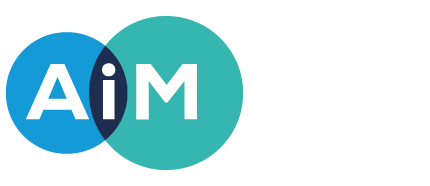Stay in touch with the latest news from AIM and get information on sector grants, jobs and events with our free fortnightly E-News.
Stop – Start – More – Less
2021 is going to be a tough year so we do not have much choice but to find opportunities, ways to transition, search out collaborators and create new beginnings and new thinking, says Business Consultant, Louise Emerson.
I know many of you are in the midst of re-examining your business plans and perhaps tackling some of the issues you knew you had before this upheaval. The ongoing crisis is a stimulus to act on what you have learned over the past year and figure out what you need in order to build the future. You want to make what resource and money you have, create value in the most effective way in the short and medium term.
Of course, judging value can get messy when it’s not as simple as measuring it in pounds; when it is less tangible. Contribution or value can be related to reputation, it can be about building knowledge and expertise, a network of connections or partnerships that you use to lever fundraising in the future.
You need to be brutally honest when value is debatable and this is when having open honest conversations, where assumptions can be challenged and alternative opinions and options on what is valuable to the organisation are listened to, will assist you in making the best, and sometimes difficult decisions. Letting go of ways of working, or activities that are not serving your Museum can be the most difficult decisions.
Applying a STOP – START – MORE – LESS assessment to activity and operations is a simple way to get started when you are revising your plans.
Before working through this assessment of your activities, programme, marketing and operations it important to start by working out:
- What has changed forever
- What will return when the environment normalises
- What new behaviour, processes, policies, external strategies, thinking, actions etc offer up opportunities for your organisation
Having clarified what your landscape looks like now and in the medium term. Use the questions below to help you build a view of what you need to do going forward, applying a timescale.
- What do we need to stop doing?
- What do you need to start doing?
- What do you need to do more of?
- What do you need to do less of?
Use the best information you have to make these decisions and think about new ways of working.
Know the ‘true’ cost
Measure all the costs. With fewer staff its even more important than to have a clear idea of how time is used for what output. Often there are hidden costs that sit in a general central budget line, hiding the true cost of activities or in terms of income generation and fundraising the net contributions. This is often the case with fundraising. Adapt your financial records to give you the information you need to inform decisions.
Be Agile
Being agile is something many organisations have done well – fast forwarding digital distribution is just one example. What short-term opportunities can you capitalise on e.g. opening museums (when we can) exclusively to small groups or hires, micro weddings, school engagement when they are unable to leave the classroom, outdoor space used in partnership to provide exercise classes, outdoor eating, online social groups. Being connected locally and regionally can offer some short-term opportunities.
Collaborate
With harder times predicted, collaborative working is offering a lifeline for many organisations. Whether it is local building back or place-making initiatives; cost saving ventures; skill sharing or agenda specific ventures e.g. well-being and loneliness. Your competitor is likely to be suffering the same pain as you; could you be partners?
The London Museum of Water & Steam was too small to make their café profitable but working with local charity, Our Barn, that needed work experience opportunities for people with disabilities, they were able to create a win-win and something the commercial sector could not do. You can read more about how they set up this partnership here>>
There will be some very difficult decisions where lack of clarity or information mean you will make judgement calls. Recording the parameters and circumstances with which you made the decisions and the expectations, will make it much easier down the line to reflect and adapt them as circumstances change and as expectations are met or not and importantly will enable you to communicate changes.
Louise Emerson is a Business Consultant with many years’ experience working in and with museums with regard to managing change and creating business plans and strategy. She is also an accredited Coach and Mentor. Visit Louise’s website here>>
